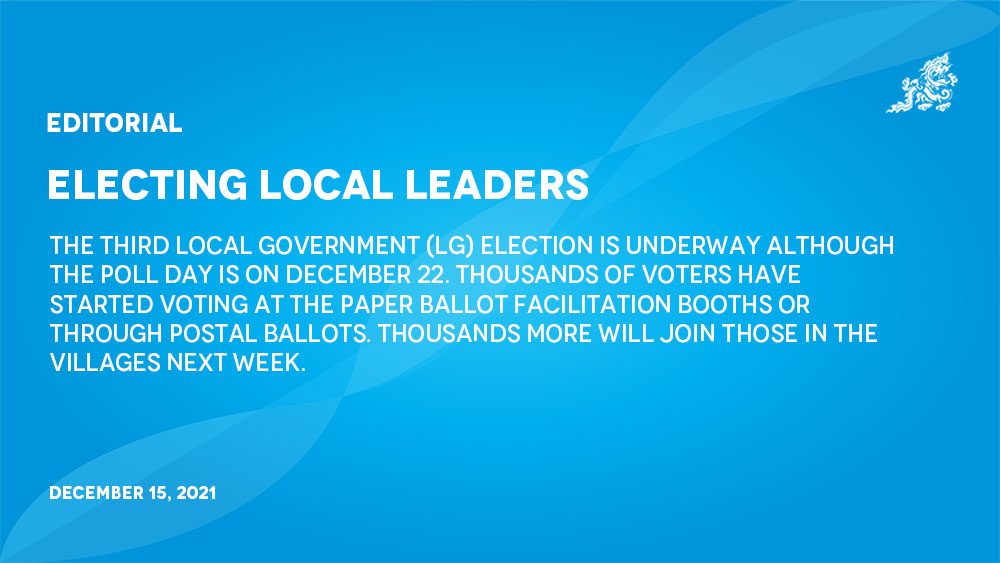The third Local Government (LG) election is underway although the poll day is on December 22. Thousands of voters have started voting at the paper ballot facilitation booths or through postal ballots. Thousands more will join those in the villages next week.
Albeit the brief controversy and confusion over the audit clearance of some candidates, the LG election has so much to offer this year. The choices are encouraging with 3,514 candidates vying for a LG post, an increase of 123 candidates from the last election. If academic qualification matters, there are 150 university graduates and eight candidates with master’s degrees although candidates need to be only “functionally literate.”
The choice is there for people to elect the right leader. Local government is important. It is not the lowest level of governance, but the one closest to the people. The mandate is important as decision making and financial powers are decentralised. A right leader at the local level can make the difference.
After decades of planned development, changes are being felt at the village level. Priorities have changed with development. Most gewogs are connected with roads, the common election promise. The priorities are different and some contestants are aware of the needs as they look beyond basic needs like water and roads. They are talking of increased food production, agriculture as an alternate source of employment, new forms of agro-based industries and many more. If villagers are convinced, they can have educated, forward-looking local leaders who can make a difference.
However, it is easier said than done.
LG elections are not as exciting as the parliamentary elections where voters choose political parties or candidates of a party. But the LG, although an apolitical body, are no less when it comes to politicking. Gone were the days when a local leader or someone nominated on the behest of villagers go around asking people to not vote for him even if that meant he wanted the job.
Contestants are bold, have strategies and are open with their ideas and plans. This is what is seen. Below the surface, we have contestants resorting to all means including clandestinely wooing voters in many ways. As the poll day nears, there are offers of free lifts, cost of fuel or mileage to potential voters who forgot to register for postal ballot or voting at facilitation booths. In the villages, plans and strategies are drawn to undo each other even before they stand at the preliminary level – Damngoi Zomdus.
Having more than one contestant whether for Tshogpa, Mangmi or Gup is not seen as providing choice to voters. They are rather seen as Jamchey (enemies). There are no studies done, but from what is happening on the ground, candidates are elected on who can woo more voters in whatever ways. It is still based on how many relatives or friends you have if not how much money one spends. There is an incumbency factor. Many feel that giving a chance is more important than the credibility of candidates. The so-called educated voters are estranged from their villages to make any reasoned decision. Forget having an insight into the real capabilities of potential leaders, some even do not know who is contesting and depend on their relatives.
We will see a lot of candidates elected based on so many factors. But as we wait to go to the polls, it is important to choose the right leader. The right leader may not be the one with connections or a large family network. The onus is on the voters, both coming from the towns and those in the village who know the contestants.
It is an important responsibility.


